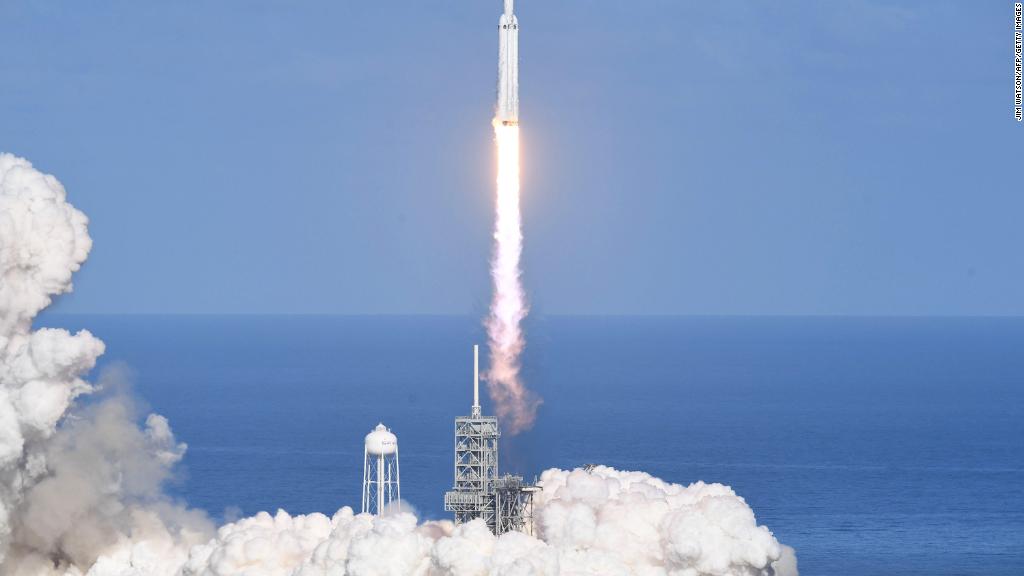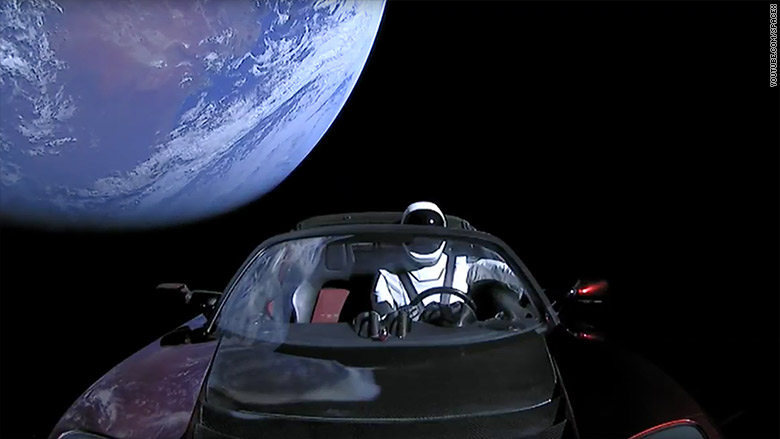
SpaceX has done it again.
The pioneering rocket firm just pulled off the unexpected, and carried out what appears to be a seamless first-ever launch of its massive new rocket, called Falcon Heavy.
That makes SpaceX, the game-changing company helmed by billionaire Tesla CEO Elon Musk, the owner of the world's most powerful operational rocket.
Falcon Heavy took flight Tuesday around 3:45 pm ET from Kennedy Space Center in Florida.
"I'm still trying to absorb everything that happened because it's still kind of surreal to me," Musk told reporters after the launch.

Thousands of onlookers in Florida could be heard cheering on the company's livestream, which was viewed by about 3 million people.
In the run up to launch, it wasn't at all clear that the rocket would work.
"People [came] from all around the world to see what will either be a great rocket launch or the best fireworks display they've ever seen," Musk said in an interview with CNN's Rachel Crane Monday.
Related: Falcon Heavy: How it stacks up with other massive rockets
The rocket's smooth takeoff wasn't the only stunning thing about this launch.
In a never-before-seen feat, SpaceX also managed to guide at least two of the Falcon Heavy's first-stage rocket boosters to land upright back on Earth. They cut back through the Earth's atmosphere and landed in unison at a Kennedy Space Center landing pad.
"That was probably the most exciting thing I've ever seen -- literally ever," Musk said.
The third booster was supposed to land on a sea-faring platform called a droneship -- but just as it was about to land, the livestream cut out. Musk confirmed after the launch that the booster crashed.
On board the rocket that's now headed deeper into space is Musk's personal Tesla (TSLA) roadster. At the wheel is a dummy dressed in a spacesuit. Musk said in December the car would play David Bowie's "Space Oddity" on repeat. Cameras on board the car show it cruising by Earth, which appears as a big blue orb in the background. Musk plans to send the car into orbit around the sun.
He announced last year he planned to put his car on the inaugural Falcon Heavy flight. When asked on Twitter why he wanted to throw away a $100,000 vehicle, he replied, "I love the thought of a car drifting apparently endlessly through space and perhaps being discovered by an alien race millions of years in the future."
Related: Everything you need to know about SpaceX's Falcon Heavy
Tuesday's success marked a huge step forward for a company that's already managed to shake up the rocket industry with its groundbreaking technology.
The company made the world take notice when it proved it can safely return first-stage rocket boosters to Earth with its Falcon 9 rocket, which the company has used for more than 40 missions dating back to 2012.
Those rockets have a single first-stage booster, and SpaceX has safely recaptured them after 21 Falcon 9 launches.
Now, SpaceX routinely puts used boosters back to work. In fact, the inaugural Falcon Heavy flight actually used two pre-flown Falcon 9 boosters (the center booster was new.)
Reusing hardware is part of SpaceX's plan to drive down the cost of launches.
Before SpaceX came along, companies just discarded rockets after each mission.
Note the Falcon Heavy is not the most powerful rocket in history. That honor belongs to NASA's Saturn V rocket, which was used for the Apollo moon landings and was retired in the 1970s.

